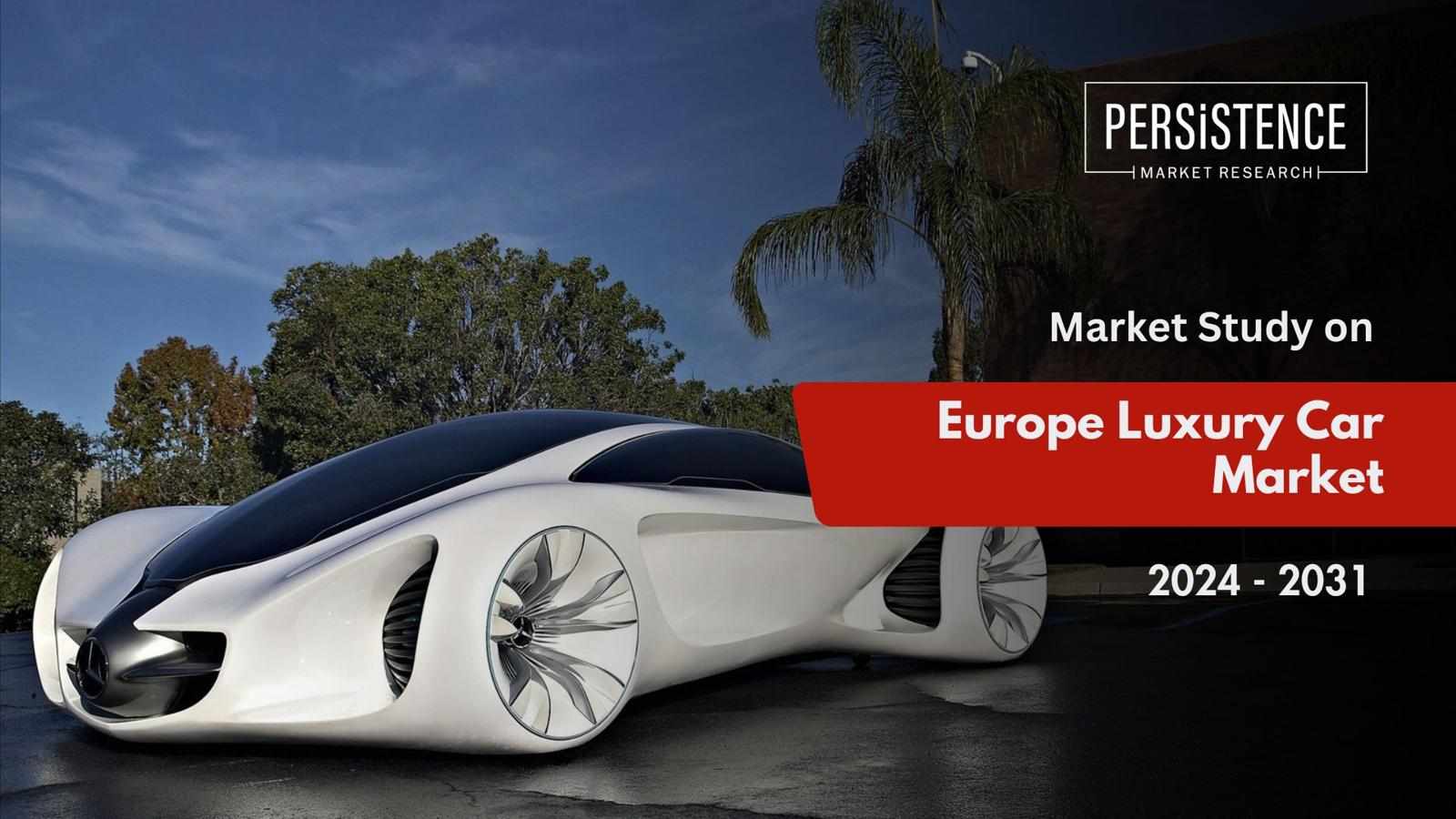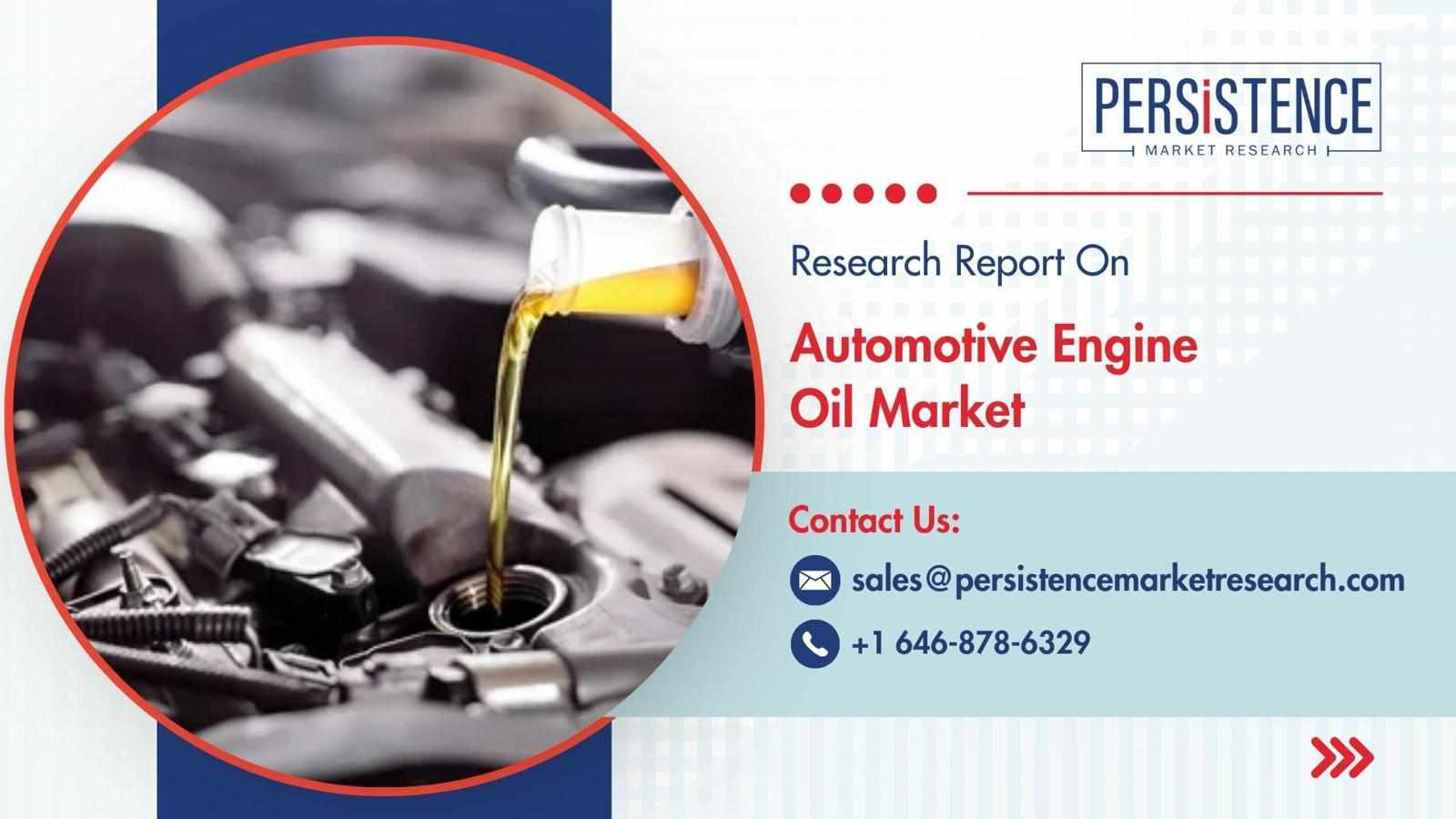
The luxury car market in Europe has long been synonymous with opulence, precision, and performance. However, as consumer preferences evolve, the definition of luxury in the automotive industry is undergoing a radical transformation, largely driven by technological advancements. From electric powertrains and autonomous driving features to AI-powered infotainment systems and cutting-edge safety technologies, the luxury car market in Europe is embracing a future where technology and innovation redefine what it means to own a high-end vehicle.
The European Luxury Car Market: A Snapshot
According to projections by Persistence Market Research, the Europe luxury car market is estimated to reach a valuation of US$287.7 billion by the end of 2031, growing from US$160.5 billion in 2024. This significant growth is expected to follow a compound annual growth rate (CAGR) of 8.7% from 2024 to 2031. This surge reflects an increasing demand for luxury vehicles, driven by a more affluent customer base, an appetite for high-tech features, and a greater focus on sustainability.
In recent years, the European luxury car segment has witnessed a shift from traditional petrol and diesel engines to hybrid and fully electric vehicles. At the same time, other high-tech features such as autonomous driving capabilities, AI-powered infotainment systems, and advanced connectivity options have become increasingly central to the luxury experience.
Technological Innovation: The Heart of Luxury Cars
The role of technology in reshaping the European luxury car market is undeniable. As the industry moves toward smart, connected, and electrified vehicles, luxury automakers are leading the way in introducing groundbreaking innovations. These developments are enhancing driving experiences, making vehicles safer, more efficient, and more personalized.
Electric Vehicles (EVs): The New Luxury Standard
One of the most significant technological shifts in the luxury car market is the rise of electric vehicles. With growing concerns about environmental sustainability, European automakers are increasingly prioritizing EV production. Luxury car brands such as BMW, Audi, Mercedes-Benz, and Porsche have already launched electric versions of their popular models, with more expected to follow in the coming years.
Electric powertrains offer numerous advantages for luxury car buyers, including quieter rides, faster acceleration, and reduced environmental impact. Moreover, many luxury EVs come with extended driving ranges, rapid charging capabilities, and high-performance features, making them an attractive option for those seeking both sustainability and performance.
Tesla, the frontrunner in the luxury EV space, has set the standard for what consumers expect from an electric luxury car. Its sophisticated autopilot features, advanced connectivity, and premium in-car technology have raised the bar for all automakers, prompting traditional luxury car brands to enhance their electric offerings with similar innovations.
Autonomous Driving: The Ultimate in Convenience and Safety
Autonomous driving technology is another area where technology is redefining luxury in the European car market. Luxury car buyers are increasingly looking for vehicles that can offer more convenience and safety through advanced driver-assistance systems (ADAS). High-end models are being equipped with features like adaptive cruise control, lane-keeping assist, automatic emergency braking, and self-parking technology.
At the forefront of this shift is Mercedes-Benz, which has been pioneering autonomous driving features in its flagship S-Class sedan. With the introduction of the Level 3 autonomous driving technology, the S-Class can take over control of the vehicle in certain driving conditions, such as highway driving, while still allowing the driver to maintain oversight. As more countries approve the use of autonomous vehicles on public roads, luxury automakers are expected to roll out more sophisticated autonomous features that promise to revolutionize the driving experience.
While fully autonomous cars are still in the testing phase, the continued development of ADAS systems is making it increasingly common for luxury vehicles to feature technology that minimizes driver intervention, offering greater comfort and reducing road safety risks.
Infotainment and Connectivity: A Seamless Digital Experience
In the realm of luxury cars, the in-car infotainment system is becoming just as important as the vehicle's performance and comfort. Today's luxury car buyers expect more than just basic entertainment options; they want an immersive, connected experience. This demand is driving innovation in infotainment systems, with brands integrating the latest technology to enhance user experience.
A prime example of this is BMW’s iDrive system, which offers a user-friendly interface with touch, gesture, and voice controls. The system is integrated with Apple CarPlay and Android Auto, allowing seamless smartphone connectivity. Furthermore, luxury car manufacturers are introducing AI-powered systems that adapt to drivers’ preferences and provide personalized recommendations for everything from entertainment to climate control.
Mercedes-Benz has also pushed the envelope with its MBUX (Mercedes-Benz User Experience) system, which uses advanced natural language processing and artificial intelligence to enable voice commands like “Hey Mercedes.” This level of interaction ensures that drivers and passengers can enjoy a truly hands-free and intuitive experience, further enhancing the luxurious feel of the car.
Advanced Safety Features: Protecting What Matters Most
Safety has always been a top priority for luxury car manufacturers, and with advancements in technology, modern luxury cars offer an array of innovative safety features. These include everything from collision-avoidance systems to driver monitoring systems that can detect signs of fatigue or distraction.
Volvo, a brand known for its commitment to safety, continues to innovate with its advanced driver-assistance systems. The company’s IntelliSafe technology offers a range of safety features, including automatic braking, blind-spot monitoring, and lane departure warnings. Additionally, Volvo is working towards the introduction of a “360-degree safety” approach, which includes sensors and cameras around the car to provide a complete understanding of the vehicle’s surroundings.
By equipping their vehicles with state-of-the-art safety technology, luxury car manufacturers are ensuring that their customers can enjoy peace of mind alongside unparalleled comfort and performance.
Sustainable Luxury: A Growing Trend
As climate change and sustainability become increasingly pressing concerns, luxury car buyers are also looking for ways to reduce their environmental impact without sacrificing performance. This has led to a significant push towards more eco-friendly options, such as hybrid and fully electric vehicles.
Many luxury car brands are now offering hybrid powertrains as a middle ground between traditional combustion engines and fully electric powertrains. These hybrids combine the best of both worlds, providing the performance of a traditional engine with the efficiency and lower emissions of an electric motor.
Moreover, luxury car manufacturers are also focusing on sustainable materials in their vehicles. For instance, Audi is incorporating recycled materials into its interiors, while BMW offers vegan leather options in its electric iX3 SUV. These eco-conscious choices are resonating with a growing segment of luxury consumers who are looking for ways to drive responsibly while still enjoying the finer things in life.
The Future of Luxury Cars in Europe
The European luxury car market is entering an exciting new phase, where technology plays a central role in shaping the future of automotive luxury. As we look ahead, it’s clear that vehicles will continue to evolve in ways that challenge traditional ideas of luxury. What was once defined by polished chrome and leather upholstery is now being redefined by cutting-edge technologies that make cars smarter, safer, more connected, and environmentally friendly.
The expansion of electric vehicles, the adoption of autonomous driving, the integration of advanced infotainment systems, and the emphasis on safety are all integral to this transformation. With the projected growth in the European luxury car market—estimated to reach US$287.7 billion by 2031—it's evident that technology is not just enhancing the luxury driving experience; it is transforming it.
For luxury car buyers in Europe, the future is bright. It is a future that combines sustainable practices with the pinnacle of automotive innovation, ensuring that technology continues to redefine what it means to experience true luxury.





















Write a comment ...